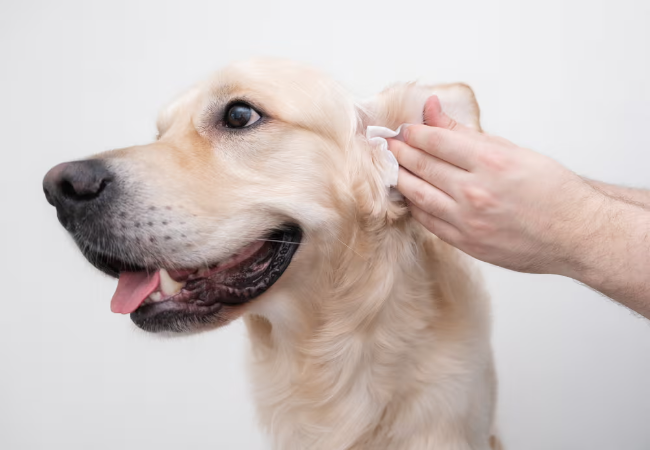Vet Approved Guide: Dog Breeds Prone to Ear Infections 2025 🩺🐶

In this article
Vet-Approved Guide: Dog Breeds Prone to Ear Infections 2025 🩺🐶
By Dr. Duncan Houston BVSc
Ear infections are a common issue in dogs, often causing discomfort and leading to more serious conditions if left untreated. Certain breeds are more susceptible due to their ear structure, hair growth, and predisposition to allergies. Understanding these risks can help in prevention and early treatment.
🐾 Breeds with Floppy Ears
Dogs with long, floppy ears are more prone to ear infections because their ear structure can trap moisture and debris, creating an ideal environment for bacteria and yeast to thrive.
- Basset Hounds: Their long ears can drag on the ground, picking up dirt and debris.
- Cocker Spaniels: Heavy, floppy ears and thick hair increase the risk.
- Beagles: Their ear shape limits airflow, leading to moisture buildup.
✂️ Breeds with Hairy Ear Canals
Excessive hair in the ear canals can trap moisture and debris, leading to infections.
- Poodles: Hair in the ear canal can hold in moisture.
- Schnauzers: Dense hair growth requires regular grooming.
🌾 Allergy-Prone Breeds
Allergies can cause inflammation in the ears, making infections more likely.
- Labrador Retrievers: Prone to environmental allergies.
- Golden Retrievers: Susceptible to food and environmental allergens.
🚫 Breeds with Narrow Ear Canals
Narrow ear canals can prevent proper airflow and drainage, leading to infections.
- Shar-Peis: Their tight ear canals and skin folds increase risk.
🩺 Signs of Ear Infections
Be vigilant for the following symptoms:
- Scratching or pawing at the ears
- Head shaking or tilting
- Redness or swelling in the ear canal
- Unpleasant odor
- Discharge from the ear
🧼 Preventive Care Tips
Regular maintenance can help prevent ear infections:
- Clean your dog's ears with a vet-approved solution.
- Ensure ears are dry after baths or swimming.
- Regular grooming to remove excess hair in the ear canal.
- Monitor for signs of allergies and consult your vet for management strategies.
📱 Consult with Veterinary Professionals
For personalized advice and support, connect with veterinary professionals through the Ask A Vet app. 📱 They can provide tailored recommendations to ensure your dog's ear health and overall well-being. 🐶🐾
By understanding the specific needs of your dog's breed and taking proactive steps, you can help prevent ear infections and ensure a happy, healthy life for your furry friend. 🐾❤️






